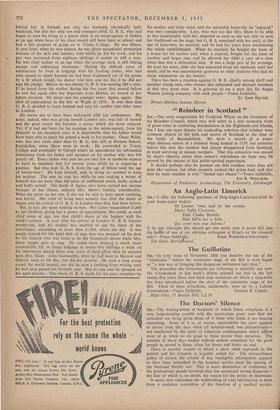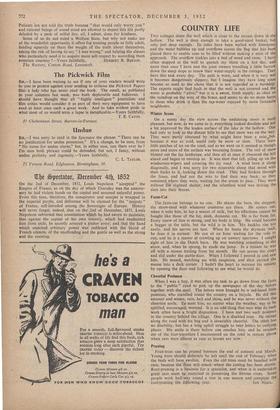The Doctors' Silence SIR,—The waiting-about at hospitals Of which Janus
complains is .a very long-standing trouble with the inarticulate poor; now that the articulate are being given doses of it those who cause it are hearing something. Some of it is, of course, unavoidable but most appears to derive from the days when all hospital-work was philanthropic— not unaffected by the spirit of conscious condescension which afflicts most of us when we do good to those poorer than ourselves. The patients of those days waited without spoken complaint for the good people to attend to them, often for hours and hours on end.
There is another respect in which a niore adult approach to the patient and his relatives is urgently called for. The extraordinary policy of silence, the refusal of any intelligible information, appears to have been intensified in the hospital serike since the passing of the National Health Act. This is more destruCtive of confidence in the professional people involved than the occasional wrong diagnosis— the fear of which is, no doubt, the reason for the policy of dumbness.
It seems that sometimes the withholding of vital information is done from a mistaken conception of the function of a medical service. Patients are not told the truth because "that would only worry you" and rational beings of sound mind are allowed to depart this life partly deluded by a pack of wilful lies; all, I admit, done for kindness.
Some of us do not mind a Welfare State, but why not make use of the wonderful opportunity it offers for treating people as fully adult, landing squarely on them the weight of the truth about themselves, taking the risk of having to say "1 was wrong," and helping the classes who particularly need it to acquire more self-respect by according them
common courtesy ?—Yours faithfully, HERBERT R. BARTON. The Rectory, Corion Road, Lowestoft.



















































 Previous page
Previous page